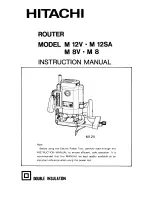
268
Configuring MLD
Overview
An IPv6 router uses the MLD protocol to discover the presence of multicast listeners on the directly
attached subnets. Multicast listeners are nodes wishing to receive IPv6 multicast packets.
Through MLD, the router can learn whether any IPv6 multicast listeners exist on the directly connected
subnets, put corresponding records in the database, and maintain timers related to IPv6 multicast
addresses.
Routers that run MLD use an IPv6 unicast link-local address as the source address to send MLD messages.
MLD messages are ICMPv6 messages. All MLD messages are confined to the local subnet, with a hop
count of 1.
MLD versions
•
MLDv1 (defined in RFC 2710), which is derived from IGMPv2.
•
MLDv2 (defined in RFC 3810), which is derived from IGMPv3.
All MLD versions support the Any-Source Multicast (ASM) model. In addition, MLDv2 can directly
implement the Source-Specific Multicast (SSM) model, but MLDv1 must work with the MLD SSM mapping
function to implement SSM service. For more information about the ASM and SSM models, see
"Multicast overview."
How MLDv1 works
MLDv1 implements IPv6 multicast listener management based on the query/response mechanism.
MLD querier election
All IPv6 multicast routers on the same subnet can monitor MLD listener report messages (often called
"reports") from hosts. The subnet needs only one router to act as the MLD querier to send MLD query
messages (often called "queries"). A querier election mechanism determines which router will act as the
MLD querier on the subnet.
1.
Initially, every MLD router assumes itself as the querier and sends MLD general query messages
(often called "general queries") to all hosts and routers on the local subnet. The destination address
is FF02::1.
2.
After receiving a general query, every MLD router compares the source IPv6 address of the query
message with its own interface address. After comparison, the router with the lowest IPv6 address
wins the querier election and all other routers become non-queriers.
3.
All the non-queriers start a timer called the "other querier present timer." If a router receives an
MLD query from the querier before the timer expires, it resets this timer. Otherwise, it assumes the
querier has timed out and initiates a new querier election process.
















































